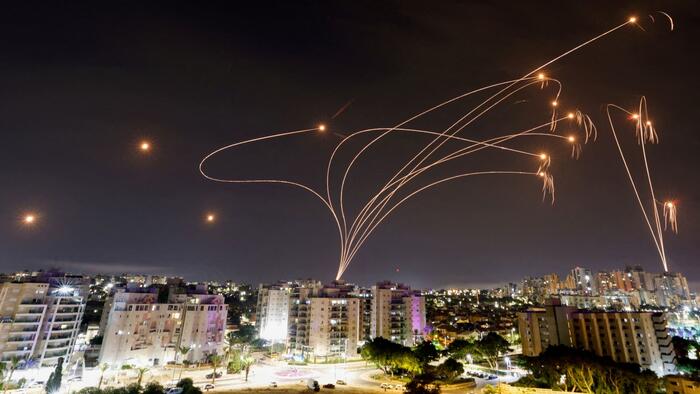Israel is currently engaged in a multifront war, facing significant threats primarily from Hezbollah in Lebanon, which has been launching a continuous barrage of projectiles into Israeli territory. This relentless assault has not only strained Israel’s military resources but also stretched its air defense capabilities thin, as the country grapples with high daily intercept requirements. In response to the increasing number of threats, Israel has activated its advanced anti-air defense systems, which on some days have had to deploy hundreds of interceptors to counteract incoming fire. This operational tempo was notably intensified after the Iranian ballistic missile attack on October 1st, which further highlighted the severity of Israel’s situation.
As the conflict escalates, various reports underscore that Israel is nearing a critical shortage of interceptor missiles. A Financial Times article, backed by insights from military analysts and former officials, emphasizes that Israel’s missile defense shield is fundamentally being tested under the weight of ongoing and heightened conflict. Industry executives and analysts have raised alarm about this “looming shortage,” which is exacerbated by the need to defend against coordinated attacks from both Iranian forces and their regional proxies. In light of these developments, the United States has stepped in to bolster Israel’s defenses, most recently deploying a Terminal High-Altitude Area Defense (THAAD) system to help mitigate the anticipated retaliatory strikes from Iran.
High-ranking defense analysts, including Dana Stroul, have articulated the gravity of Israel’s munitions predicament. In her assessment, Stroul warned that if Iran were to launch a significant airstrike in retaliation for an Israeli attack, the combined pressures from Hezbollah and the Iranian regime could overwhelm Israel’s air defense system. This scenario raises serious concerns about the extent to which the United States can continue to supply resources to Israel while also supporting its commitments in other geopolitical theaters, notably Ukraine. Stroul cautioned, “We are reaching a tipping point,” referring to the limitations of U.S. defense stockpiles when trying to sustain support across multiple global hotspots.
The insight into Israel’s precarious situation goes beyond military logistics and points to an increasingly reliant relationship on U.S. support for continued operational effectiveness. As analysts note, the necessity for steady arms shipments from the United States has become critically important. Reports indicate that while Israeli defense firms like Israel Aerospace Industries are reportedly working around the clock to meet demands, the country faces genuine challenges in maintaining effectiveness on multiple fronts without the U.S. replenishing its armaments and interceptor inventories.
The humanitarian and geopolitical implications of the conflict have also drawn international attention. Some Palestinian media outlets have highlighted how Israel’s military has been forced to depend heavily on U.S. support amid the ongoing strife. This reliance on American military aid not only ensures a continual flow of advanced defense systems but also reflects the complexities of global politics, where U.S. support for Israel remains unwavering even amidst mounting regional tensions. The increasing military partnership reinforces the idea that while conflict and necessity elevate defense requirements, U.S. interests fundamentally underpin Israel’s operational capabilities.
With the backdrop of a presidential race in the U.S., where pro-Israel sentiment is prevalent amongst both major political parties, doubts about the continuation of American support for Israel seem unlikely. Major defense firms based in the U.S. have been the main beneficiaries of the heightened military expenditures related to these conflicts. The situation remains fluid, and while the U.S. continues to bolster Israel’s defenses in the short term, the longer-term implications of maintaining such resources amid simultaneous global conflicts will require careful navigation. The ongoing involvement signifies profound complexities in both the security architecture of Israel and the geopolitical landscape of the broader Middle East.

